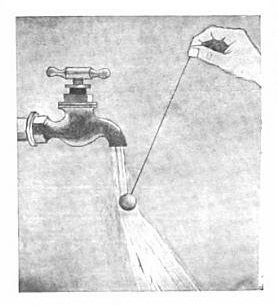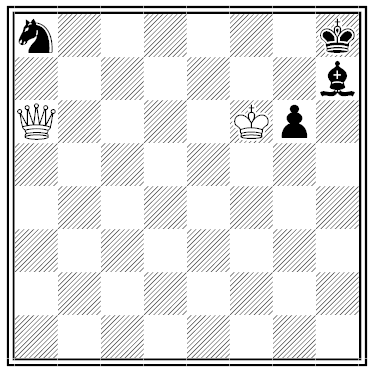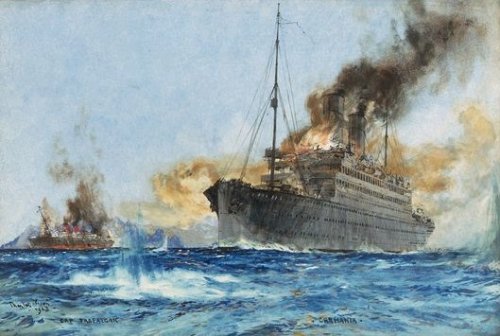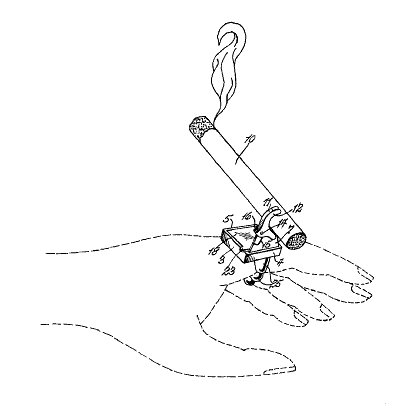
If a cork ball about an inch in diameter be tied at the end of a thread about a foot in length, and then swung so that it enters a smooth stream of water flowing from a tap at about three inches from the mouth of the latter, it will be found that the ball will remain in the water, and that the thread will make an angle of about thirty degrees with a vertical line passing through the ball. The latter, it should be added, must be thoroughly wetted before this result is produced.
— Strand, September 1908



